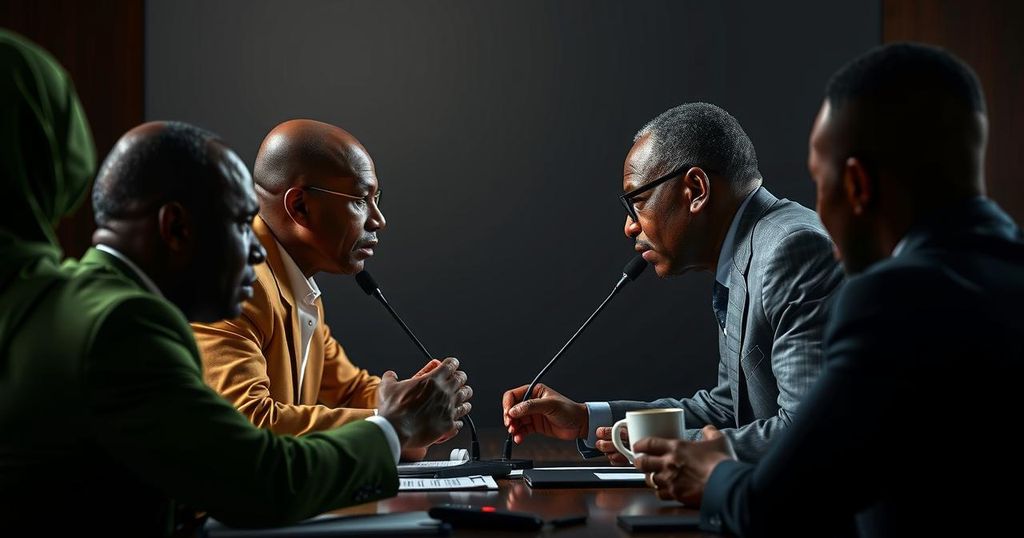Resumption of South Sudan Peace Talks Marks Hope for Stability
After a four-month break, peace talks in South Sudan resumed in Kenya, involving the government and holdout opposition groups. The discussions were delayed due to the sacking of the government delegation, with a new team now involved. The peace initiative, started in May, aims to address concerns raised by opposition factions while navigating ongoing humanitarian issues and the economic crisis facing the nation.
Peace talks in South Sudan resumed in Nairobi, Kenya, following a four-month hiatus and a reshuffling of the government delegation. The discussions involve the South Sudanese government and opposition groups that did not sign the 2018 peace agreement, which ended a devastating five-year civil conflict claiming over 400,000 lives. The talks, aptly named Tumaini—a Swahili word meaning hope—originally commenced in May with both parties signing a commitment declaration for peace.
These negotiations faced delays after President Salva Kiir dismissed the previous government representatives. A new delegation was appointed; however, their travel to Nairobi was impeded on two occasions without explanation. Recently, President Kiir clarified that these negotiations are intended to address the concerns of non-signatory groups rather than to replace the existing peace agreement.
Though the 2018 agreement remains partially unimplemented, elections that were set for December 2024 have been postponed until 2026 due to registration delays caused by financial constraints, resulting in prolonged salary delays for civil service workers. The primary revenue stream, oil exports, has been adversely affected due to a damaged pipeline in Sudan, which is embroiled in civil unrest.
During the current discussions, both parties voiced concerns regarding a newly introduced law permitting arrests without warrants, asserting that it infringes upon human rights. Chief mediator Lazarus Sumbeiyo urged the parties to resolve any outstanding issues. Pagan Amum, leader of the South Sudan Opposition Movement Alliance, emphasized the urgency of adhering to previous agreements, stating the critical state of the country. Government representative Kuol Manyang Juuk underscored a need to move forward based on prior accomplishments.
In summary, while South Sudan’s peace talks resumed after a significant delay, they face numerous challenges, including the need for unity among diverse parties and addressing vital humanitarian concerns. Success in these negotiations is crucial for mitigating the country’s suffering and fostering stability.
The latest peace talks in South Sudan are a continuation of efforts to stabilize a nation that has been plagued by civil unrest since its independence in 2011. The previous civil conflict, lasting five years, severely impacted the country’s economy and led to immense loss of life. The 2018 peace agreement sought to establish a framework for governance and reconciliation, yet implementation has been sluggish, leading to heightened tensions and delays in critical actions, such as the scheduling of elections.
In conclusion, the resumption of peace talks in South Sudan marks a crucial moment for the nation as it navigates the complexities of rebuilding after years of conflict. While the discussions aim to integrate the concerns of all parties involved, the underlying challenges, including a faltering economy and human rights issues, must be addressed to achieve lasting peace and stability. The commitment of all sides to adhere to previous agreements and work collaboratively is vital to preventing further disintegration of the country.
Original Source: apnews.com




Post Comment